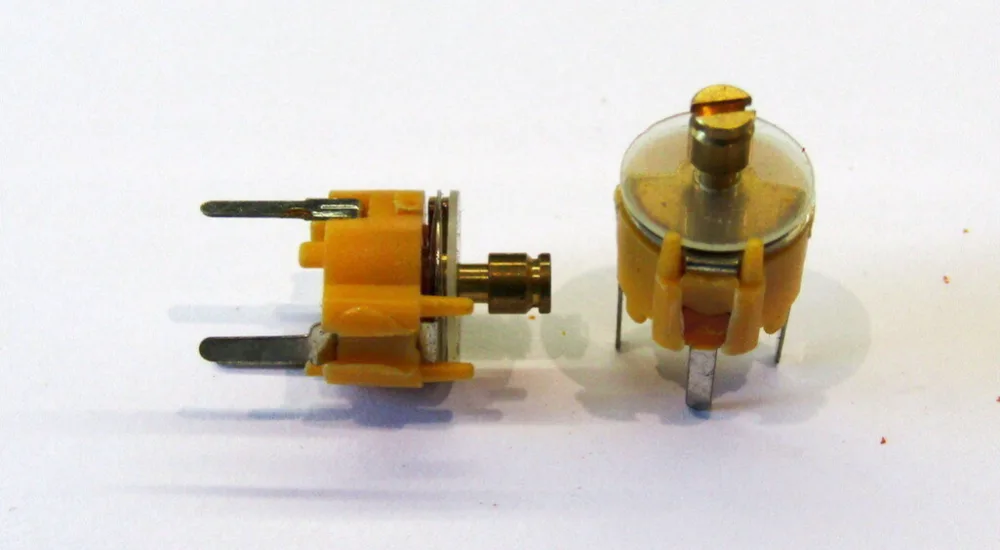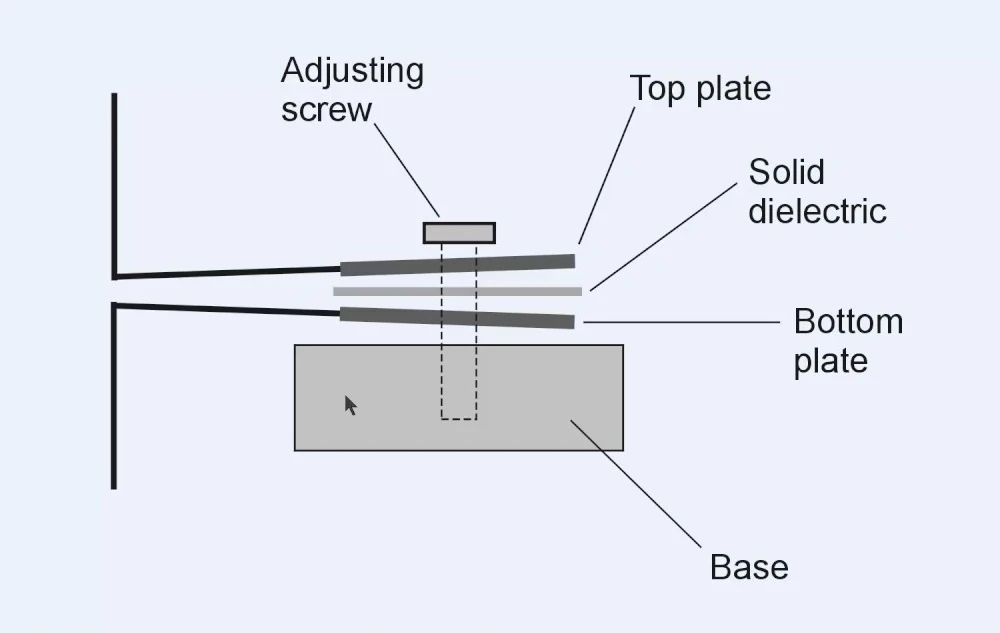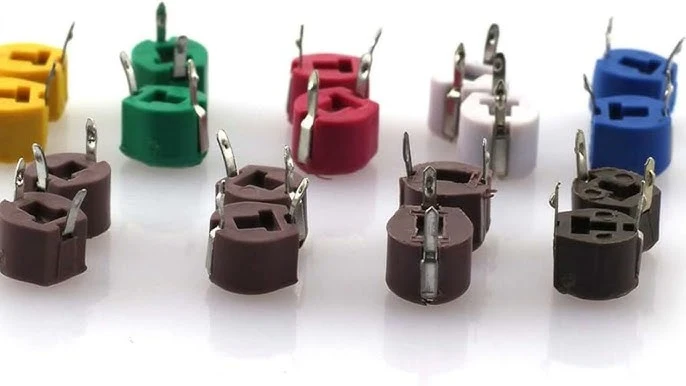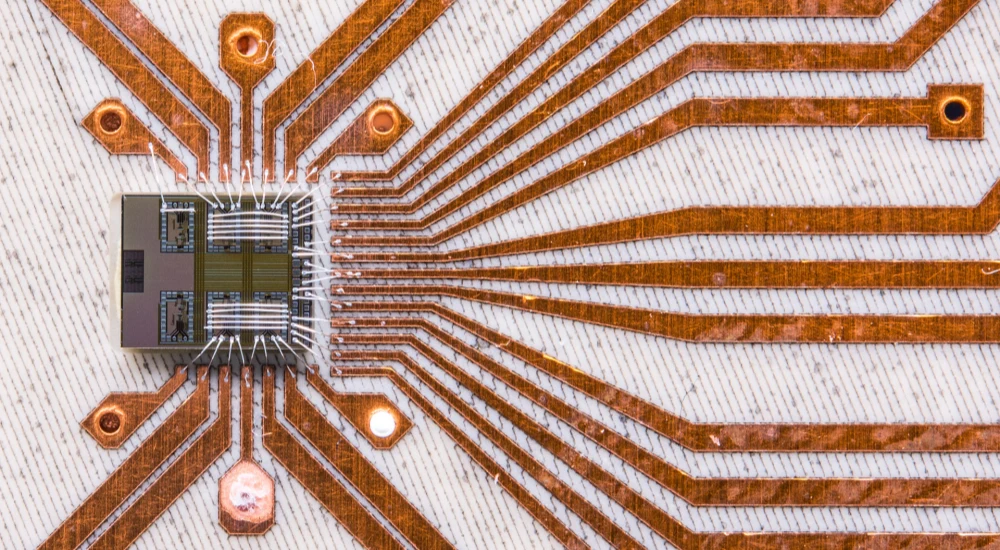A Trimmer Capacitor is a small, adjustable capacitor used to fine-tune electrical circuits. It allows precise control over capacitance, making it ideal for applications like tuning radios, calibrating signal processing devices, and adjusting resonant circuits.
These capacitors are crucial for achieving optimal performance in many electronic devices. If you need precision and reliability in your circuits, invest in a high-quality Trimmer Capacitor today to ensure the best results.
What Is Trimmer Capacitor?

A trimmer capacitor, also known as a tuning capacitor, is a small, variable capacitor designed to fine-tune electronic circuits with utmost precision. It’s like a miniature knob that allows you to adjust the capacitance, thereby influencing the frequency response of your circuit.
These versatile components are indispensable for achieving optimal performance in a wide range of applications, including radio receivers, transmitters, and other sensitive electronic devices. By incorporating trimmer capacitors into your designs, you can ensure accurate frequency adjustments and superior overall circuit functionality.
Construction Of Trimmer Capacitor

Metal Plates:
The heart of a trimmer capacitor lies in its metal plates. These conductive surfaces, typically crafted from aluminum or brass, are meticulously designed to optimize capacitance. The precise arrangement and dimensions of these plates significantly impact the capacitor’s electrical performance.
Dielectric Material:
Separating the metal plates is a critical component: the dielectric material. This insulating substance, often composed of air, ceramic, glass, or Teflon, plays a crucial role in determining the capacitor’s capacitance and voltage rating. The choice of dielectric material is influenced by factors such as desired performance, size, and cost.
Frame:
A sturdy frame is essential to support the delicate components of a trimmer capacitor. This structural element, commonly made of plastic or ceramic, ensures the capacitor’s mechanical integrity and protects its internal components from external factors. The frame’s design must balance rigidity with flexibility to accommodate the adjusting mechanism.
Adjusting Mechanism:
The hallmark of a trimmer capacitor is its ability to fine-tune capacitance. This is achieved through an ingenious adjusting mechanism, which can be a screw, lever, or other mechanical device. By manipulating this mechanism, users can effectively vary the effective area of the metal plates, thereby altering the capacitor’s capacitance. This feature is invaluable for precise circuit tuning and optimization.
Characteristics Of Trimmer Capacitor
Voltage Rating, Capacitance Range, and Polarity:
Trimmer capacitors are available in a wide range of voltage ratings, typically up to 300 volts, although lower voltage ratings are more common. Their capacitance range is also diverse, spanning from a few picofarads to several hundred picofarads. Importantly, trimmer capacitors are non-polarized, meaning they can be connected to a circuit in any orientation without affecting their performance.
Tolerances and Accuracy:
Trimmer capacitors are not renowned for their tight tolerances, as their primary purpose is fine-tuning rather than precise capacitance values. Tolerances can be as high as ±100%, which means the actual capacitance can vary significantly from the nominal value.
However, this is not a major concern, as the adjusting mechanism allows for precise calibration. The accuracy of the final capacitance setting depends largely on the skill of the technician and the quality of the adjustment tool.
Types of Trimmer Capacitor

Air Trimmer Capacitors:
Air trimmer capacitors are versatile and widely used in high-frequency circuits. They feature an adjustable design with a rotor and stator, making them ideal for fine-tuning in applications like radio transmitters and receivers.
These capacitors offer exceptional precision and stability, even under varying environmental conditions. Their simple construction and robust performance make them an essential component for tuning circuits that require reliability and accuracy.
Ceramic Trimmer Capacitors:
Ceramic trimmer capacitors are compact, cost-effective, and widely used in applications where size and performance are key. These capacitors are made with ceramic dielectric materials, providing stable performance in a broad frequency range.
Their durability and easy adjustability make them perfect for applications in RF equipment and oscillators. Ceramic trimmers offer a high level of reliability and accuracy, making them a go-to choice for precision tuning in a variety of electronic devices.
Glass Trimmer Capacitors
Glass trimmer capacitors are known for their excellent dielectric strength and high voltage capabilities. They provide superior stability in extreme conditions and are often used in high-power applications where reliability is crucial.
With their precise adjustability, they are ideal for fine-tuning circuits in scientific instruments, high-end communication devices, and other applications requiring precise capacitance control. Glass trimmer capacitors ensure consistent performance even in demanding environments.
PTFE Trimmer Capacitors
PTFE (Polytetrafluoroethylene) trimmer capacitors offer outstanding performance in high-frequency circuits. Their dielectric material, PTFE, provides excellent thermal stability and low loss factor, making them suitable for high-power applications.
These capacitors are known for their durability and resistance to extreme temperatures, making them ideal for aerospace, military, and telecommunications. PTFE trimmers provide exceptional precision and long-term reliability in the most demanding environments.
Multi-Turn Trimmer Capacitors
Multi-turn trimmer capacitors are designed for fine-tuned adjustments, offering high precision in capacitance variation. They feature a mechanism that allows for multiple turns to change capacitance, providing smooth and gradual changes.
These capacitors are often used in situations requiring ultra-fine adjustments, such as in audio equipment, medical devices, and precision instruments. Their ability to handle minute changes in capacitance ensures optimal performance and accuracy for critical applications.
Function Of Trimmer Capacitor
Precise Capacitance Adjustment
Capacitor trimmers offer highly precise capacitance adjustment, making them perfect for fine-tuning circuits. They enable accurate tuning to achieve optimal performance in various applications. By adjusting the capacitance value with fine granularity, capacitor trimmers help enhance the performance of oscillators, filters, and other critical components, ensuring that electronic devices operate at their peak efficiency.
Frequency Tuning
Capacitor trimmers play a crucial role in frequency tuning, especially in radio frequency (RF) circuits. They help adjust and fine-tune oscillators and filters, ensuring precise frequency control. This capability is vital for RF communication systems, where small adjustments to the capacitance can significantly impact the performance of radio, TV, and wireless devices, ensuring clear, stable signal transmission.
Voltage Control
Capacitor trimmers are essential in controlling voltage within electronic circuits. They offer voltage-variable capacitance, making them ideal for applications that require voltage regulation. By precisely adjusting the capacitance, these trimmers help maintain signal clarity and stability, particularly in voltage-controlled oscillators (VCOs) and filters.
This capability ensures that the device operates within desired voltage levels, improving overall performance.
Stability Under Different Conditions
One of the standout features of capacitor trimmers is their stability under varying environmental conditions. These capacitors perform reliably even with changes in temperature, humidity, and other factors.
This makes them ideal for use in sensitive electronic devices that must operate in diverse environments, such as scientific equipment, telecommunications devices, and military systems, where stable performance is non-negotiable.
Compact Design for Small Devices
The compact design of capacitor trimmers makes them highly suitable for small, portable electronic devices. Despite their small size, these capacitors offer precise adjustments, allowing manufacturers to incorporate them into space-constrained devices like radios, TV tuners, and measurement equipment.
This combination of size, precision, and functionality ensures that capacitor trimmers can be integrated into a variety of compact electronic applications without compromising on performance.
Applications Of Trimmer Capacitor
Radio Frequency (RF) Circuits

Trimmer capacitors are crucial in radio frequency (RF) circuits, where they are used to fine-tune oscillators and filters. By precisely adjusting capacitance, they help achieve the desired frequency for smooth signal transmission.
This fine-tuning capability ensures that RF devices, such as transmitters and receivers, perform accurately. With the increasing demand for clear communication, trimmer capacitors are indispensable for maintaining signal quality in RF applications.
Communication Equipment
Trimmer capacitors are essential in communication equipment, including radios, TV tuners, and wireless devices. These capacitors adjust frequencies, enabling optimal signal reception and transmission. Their ability to make fine adjustments to capacitance ensures that communication devices function at peak performance.
Whether it’s tuning a radio station or ensuring clear wireless signals, trimmer capacitors play a vital role in ensuring stable, high-quality communication.
Voltage-Controlled Oscillators (VCOs)
In voltage-controlled oscillators (VCOs), trimmer capacitors control and stabilize the output frequency by adjusting capacitance. By fine-tuning the capacitor, VCOs maintain the precise frequency needed for applications in communications, signal processing, and electronics.
Trimmer capacitors offer the necessary precision to ensure VCOs operate smoothly and remain stable, making them essential in systems that require accurate frequency control for optimal performance.
Aerospace and Military Systems
The reliability of trimmer capacitors in harsh environments makes them crucial for aerospace and military systems. These systems demand components that can perform consistently under extreme conditions, such as temperature fluctuations and high vibrations.
Trimmer capacitors provide the necessary precision for tuning circuits and stabilizing signals, ensuring that critical systems in aviation, defense, and space applications function without failure, even in challenging environments.
Audio Equipment

Trimmer capacitors are integral in fine-tuning audio circuits, ensuring high-quality sound and stable operation. In audio devices like amplifiers, equalizers, and receivers, they adjust capacitance to optimize performance.
By providing precise control over the audio signal, trimmer capacitors help eliminate distortions, maintaining clear and crisp sound. Their ability to adjust finely allows manufacturers to meet the specific needs of various audio systems for both professional and consumer applications.
Trimmer Capacitor vs Variable Capacitor
A trimmer capacitor is a type of variable capacitor designed for fine-tuning and is typically adjusted manually with a small screw or knob. It is often used for precise adjustments in circuits.
A variable capacitor, on the other hand, generally refers to a capacitor whose capacitance can be adjusted over a wider range, and it is used in applications like tuning circuits. The main difference lies in the range of adjustment and application precision, with trimmer capacitors offering finer control.
How Do I Adjust the Trimmer Capacitor?
Adjusting a trimmer capacitor is simple and usually done by turning a small screw or knob on the capacitor’s housing. This action moves the internal plates or changes the distance between them, altering the capacitance.
To adjust, use a small screwdriver or tool to turn the screw clockwise or counterclockwise until the desired capacitance is achieved. Typically, this is done while monitoring the performance of the circuit, ensuring precise tuning.
How to Use Trimmer Capacitor?
Trimmer capacitors are typically used in circuits where precise capacitance adjustments are needed. After connecting the trimmer to the appropriate part of the circuit (like an RF oscillator or filter), adjust it using the adjustment screw or knob to achieve the desired capacitance value.
These capacitors are often used for tuning and calibrating devices like radios, communication systems, and audio equipment. The key to using a trimmer capacitor effectively is frequent testing and fine adjustments for optimal circuit performance.
Conclusion
In conclusion, trimmer capacitors play a vital role in enhancing the performance and reliability of various electronic systems. From fine-tuning frequencies in RF circuits to controlling output in voltage-controlled oscillators, these capacitors provide precise adjustments that are crucial for optimal functioning.
Their applications span across communication equipment, audio systems, aerospace, and more, making them indispensable in modern electronics. For high-quality trimmer capacitors, trust Weishi Capacitors to meet your needs—contact us today for a quote!
FAQ
What is the difference between a trimmer and a variable capacitor?
A trimmer capacitor is a type of variable capacitor designed for fine-tuning and is typically adjusted manually with a small screw or knob. It is often used for precise adjustments in circuits. A variable capacitor, on the other hand, generally refers to a capacitor whose capacitance can be adjusted over a wider range, and it is used in applications like tuning circuits. The main difference lies in the range of adjustment and application precision, with trimmer capacitors offering finer control.
What does a broken capacitor do?
A broken capacitor can cause various issues in an electronic circuit. If it fails, it may result in unstable voltage, poor signal quality, or complete circuit malfunction. A broken capacitor could also lead to overheating, excessive power consumption, or failure to filter noise in power supply circuits. The symptoms of a faulty capacitor vary depending on the circuit, but in most cases, it will hinder the proper functioning of the device or system.
Why would you need a capacitor?
Capacitors are essential in electronic circuits for storing and releasing energy. They are used to filter signals, smooth voltage fluctuations, and store energy for later use. Capacitors also help in timing circuits, signal coupling, and decoupling, making them crucial in applications like power supplies, radio frequency circuits, audio equipment, and signal processing. They play a vital role in stabilizing electrical systems and improving efficiency in numerous electronic devices.
What is an AC trimmer?
An AC trimmer is a type of variable capacitor or resistor used to adjust the capacitance or resistance in AC (alternating current) circuits. It allows for fine-tuning in circuits such as oscillators, filters, or amplifiers to achieve precise control over frequency, voltage, or current. AC trimmers are commonly used in applications like radio frequency (RF) tuning, audio equipment, and other systems where small adjustments to AC signal parameters are necessary.
How do you adjust a trimmer resistor?
Adjusting a trimmer resistor involves turning a small screw or knob on the resistor’s housing to change its resistance. This is typically done using a small screwdriver. By turning the screw clockwise or counterclockwise, you can adjust the resistance to the desired level, which will affect the current or voltage in the circuit. Trimmer resistors are often used for fine-tuning circuits, such as in volume controls or adjusting bias currents in amplifiers.